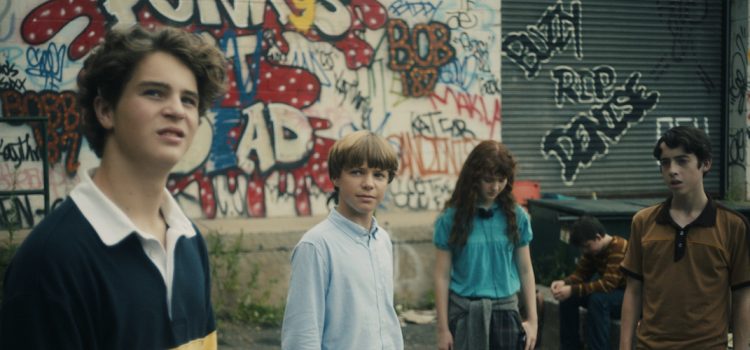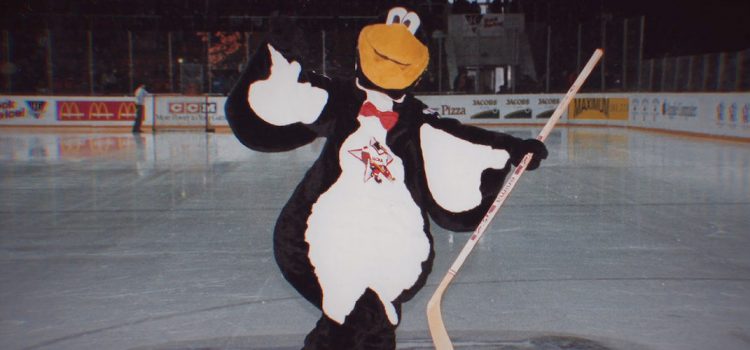By Alex McPherson
Jeff Roda’s directorial debut, “18 to Party,” is a competent coming-of-age drama that needs more time to mature.
The year is 1984 in upstate New York. A squad of angsty eighth graders, many of whom have troubled home lives, wait outside a nightclub, hoping to attend a party later in the evening. The friends discuss art, politics, UFOs, school drama, and happenings around town in the nightclub’s backlot. As the party draws nearer, their interactions force them to confront their changing selves within a world that refuses to slow down for them.
Taking place in just a couple of locations, “18 to Party” presents appealing characters, but doesn’t give them all satisfying arcs, only breaching the surface of the topics it brings up. As a result, Roda’s film definitely has heart, but ends up feeling like the pilot installment of a larger, more impactful story.
In a stripped-back fashion, Roda allows viewers to connect with these characters simply by watching them hang out over the course of an afternoon. They have distinctive personalities — from the rebellious, Reagan-hating Kira (Ivy Miller) to the anxious, uptight Shel (Tanner Flood), who becomes the film’s de facto protagonist as the story progresses. It’s certainly entertaining watching them banter and engage in vicious trash-talking, with dialogue that feels authentic to kids of their age.
This minimalist style, however, prevents me from becoming fully immersed — failing to make the most of the medium’s potential. Nevertheless, I admire Roda’s decision to show these characters in a naturalistic way, helping to render them as actual human beings. The film’s attention to period detail in costuming and music choices is also worth noting, adequately helping to set the scene.
While the film’s conversational approach lends itself to comedic moments, “18 to Party” attempts to provide more than just laughs. The children discuss difficult, sometimes harrowing topics — including reckoning with the aftermath of several suicides in their town, as well as their own life challenges, often stemming from absentee parents. Indeed, the film frequently underlines their youthful innocence as they struggle to understand what it all means.
For example, when Lanky (James Freedson-Jackson), a classmate enrolled in a support group after his brother’s death, shows up, the group doesn’t know how to react — judging him without appreciating the circumstances that helped form his fractured mental state.
The actors, across the board, effectively convey youthful energy and vulnerability. They have fantastic chemistry with one another, giving “18 to Party” a documentary-esque feel at times. The standout is Freedson-Jackson, who gives a striking performance as a peer struggling to reconnect with his friends after a traumatic experience.
Although I appreciate what Roda’s going for, there needs to be more resolution to the conflicts being brought up. All the elements of a classic are there, but “18 to Party” can’t stick the landing — leaving way too many subplots unresolved and failing to memorably articulate its themes.
Most of my problems stem from an overabundance of characters. Among the central group, consisting of seven individuals, only a couple receive any meaningful development by the conclusion. We watch some disagreements escalate into all-out fights, but don’t see the aftermath and what, if anything, the kids learn from them.
In fact, Shel is the only person that undergoes any true changes. His earnest, relatable journey towards self-acceptance and embracing life’s joys is engaging enough to watch, but doesn’t offer viewers much they haven’t likely seen before.
All that being said, “18 to Party” still has enough charm and poignancy to recommend, if only tentatively. The journey is far more compelling than the destination.
“18 to Party” (2019) is a comedy-drama written and directed by Jeff Roda and starring James Freedson-Jackson, Tanner Flood and Ivy Miller. Its runtime is 1 hr. 20 min. Alex’s Grade: B- The film is available video on demand.
Alex McPherson is an unabashed pop culture nerd and a member of the St. Louis Film Critics Association.



